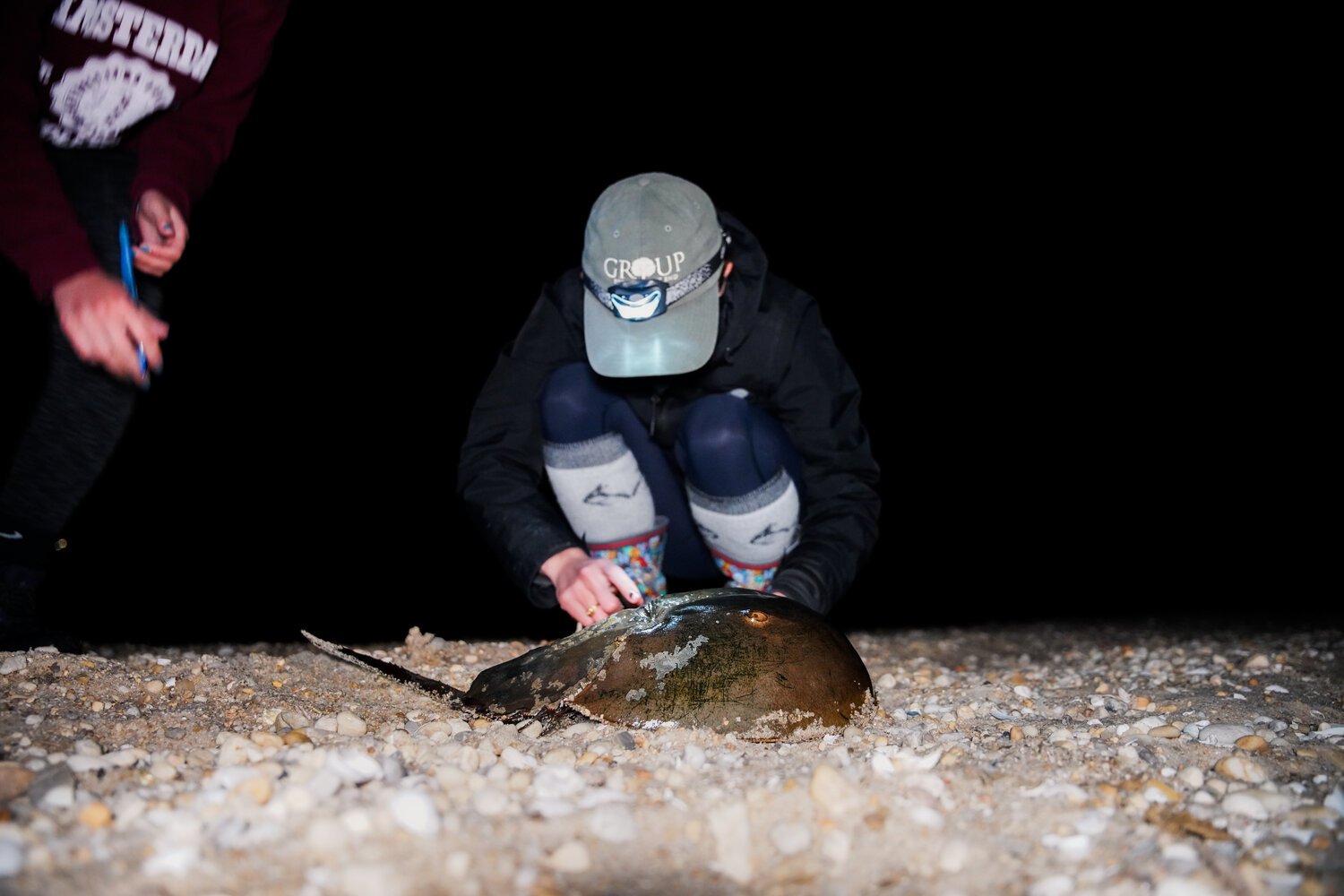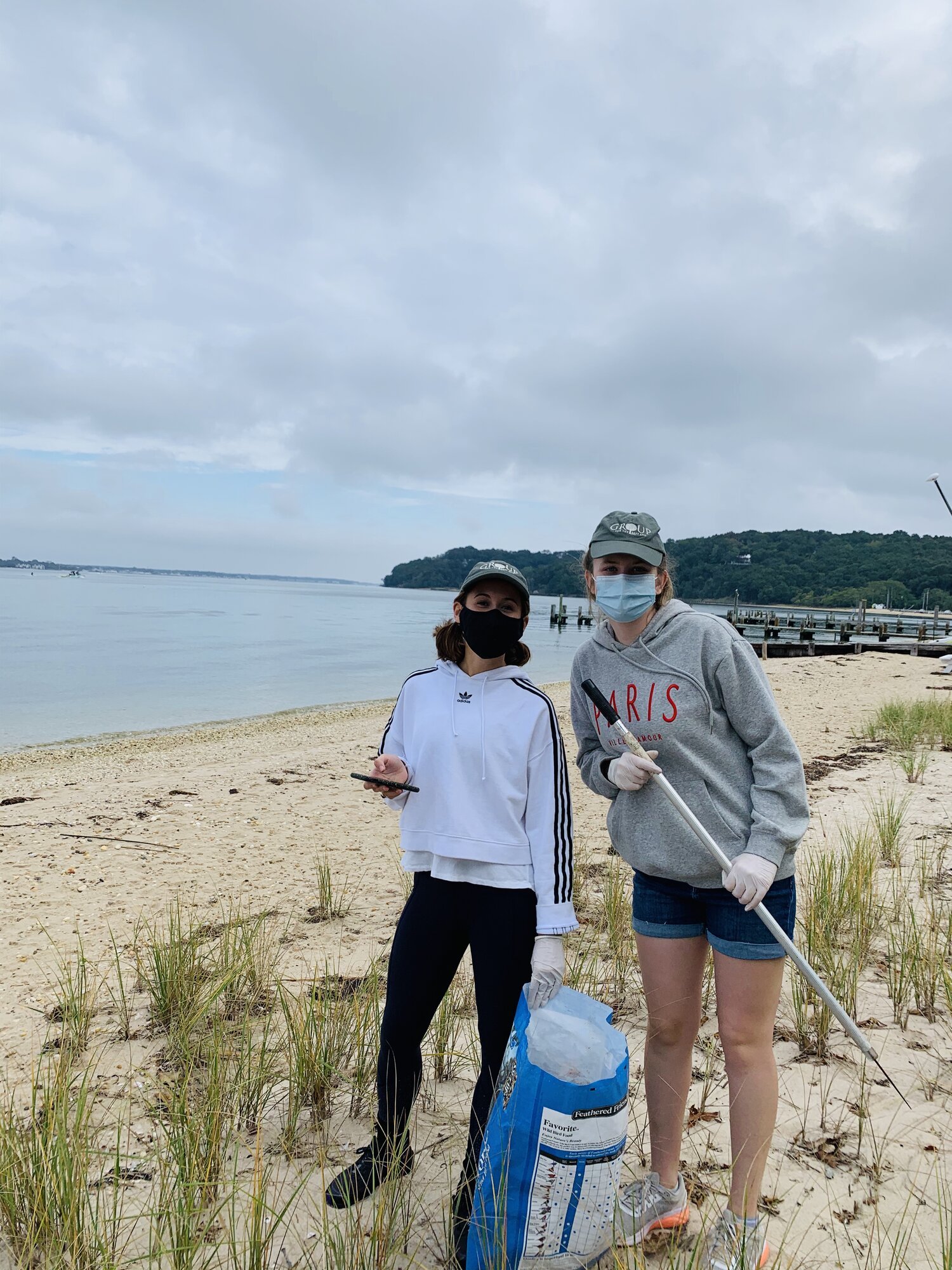The Accidental Naturalist
BY MARINA DELUCA, GROUP FOR THE EAST END ENVIRONMENTAL ASSOCIATE
Marina DeLuca looking for ospreys.
When you walk outside, have you ever asked yourself what lives under that rock? What left behind these footprints? What else is living in my flower pot, or what kind of bird flew past my window? Science is often viewed as something challenging, but I believe it becomes much easier to grasp once you understand its fundamental element – curiosity.
When I was growing up, my family and I would go out to the marsh with a seine net and see what types of marine life we could find. My brother and I would turn over rocks, dig in the sand, and wade through the water, attempting to scoop out a fish. At first, I was amazed by how many creatures were living in a seemingly empty sea. But as I got older, I began to realize that the crabs we caught were different colors, the fish we caught were different shapes, and the clams we found had very different shells. Once I began to see these minor differences which existed under the general categories of sea creatures, I had to know more, why were they different? What were they called? What did they eat? Where can you find more of them?
Monitoring horseshoe crabs.
At first, I brought these questions to my dad, an environmental scientist. However, he did not have all the answers, so he sent me in the direction of his field guides. Before long, I was combing through page after page, attempting to identify the creatures I found and learning fascinating tidbits of information about each species. This drove me back out into the bay and other bodies of water in search of the species I had seen in my book.
Speaking at a Southold Town Hall meeting on the importance of protecting the environment for future generations.
What I did not realize at the time is that my curiosity about the world around me was driving scientific exploration. Too often, we see science as being something challenging that can be impossible to grasp. But really, science is just the process of exploring our curiosity and seeking answers to our questions. So take a moment to step outside and ask a question. What lives under that log, or why are leaves green? Spend a few minutes searching, turn over a rock or log, order a field guide, or stop by your local library and see if you can find the answer. Join a nature program! You never know what you might discover!
Shelter Island beach cleanup with friends!




